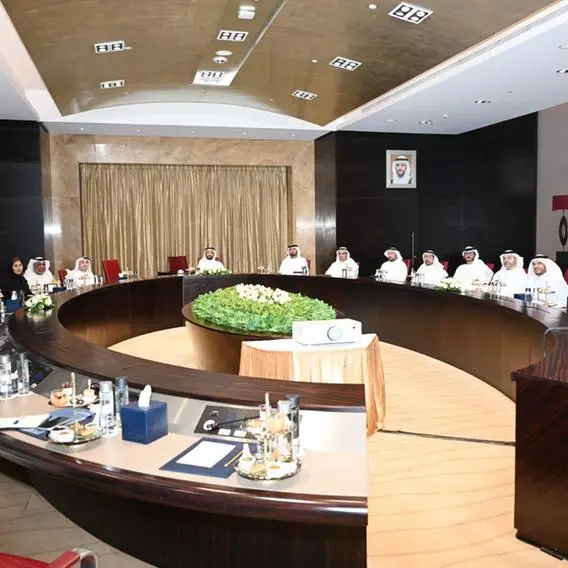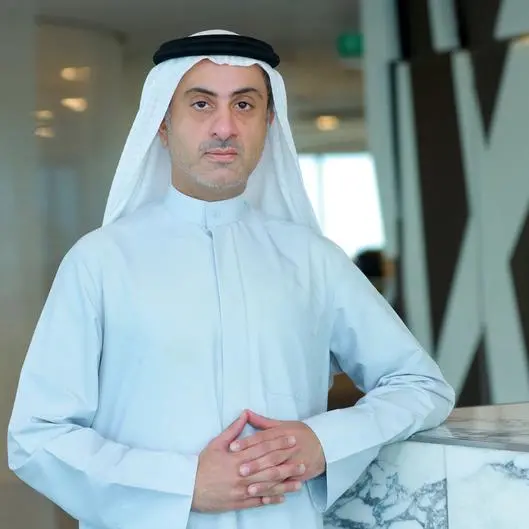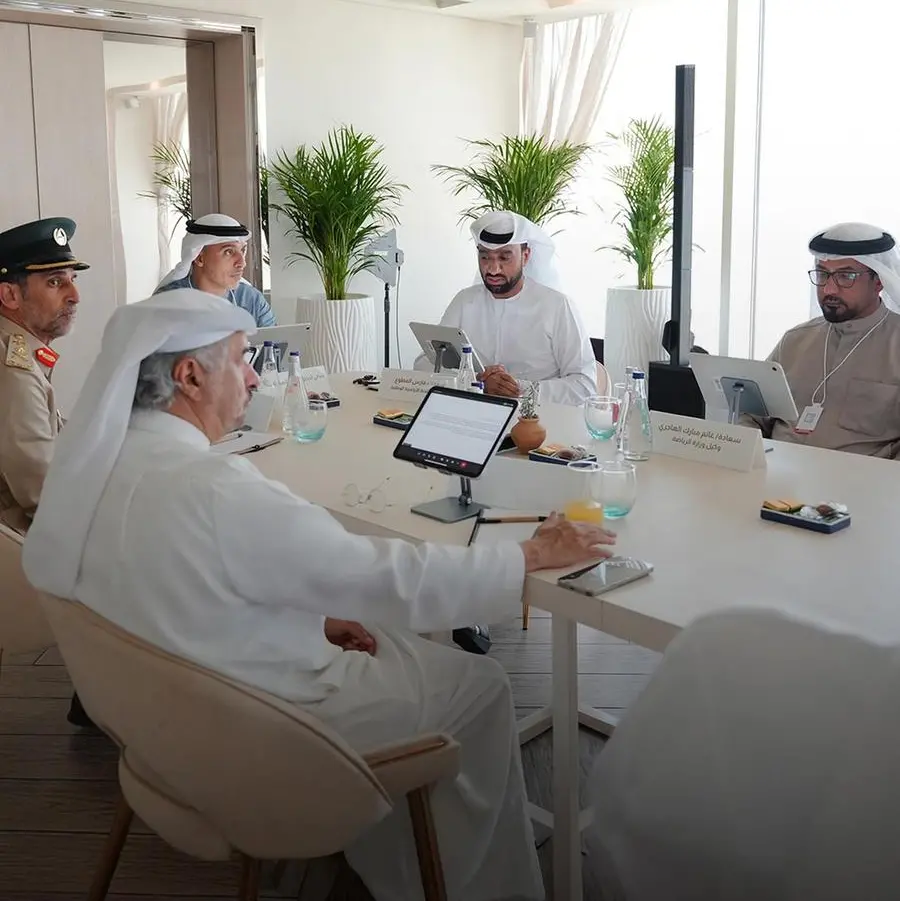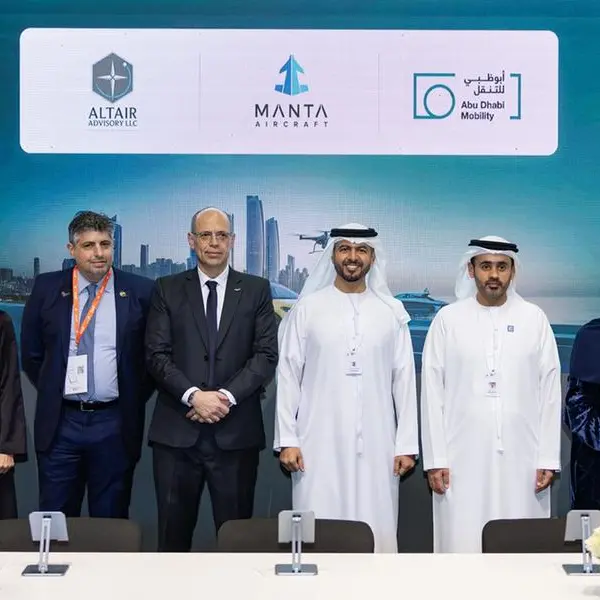PHOTO
- The campaign, which will continue until May 2025, launched its first phase in February 2022.
- The Ministry of Health and Prevention and the Emirates Health Services (EHS) are actively promoting awareness regarding diseases transmitted by mosquitoes and propagating effective preventive measures at the national level.
- This phase aligns with a surge in rainfall across the UAE, that led to an increased risk of mosquito proliferation in water pools and damp areas, which necessitated the escalation of the Anti-Mosquito Campaign.
- The Ministry of Climate Change and Environment urges all community members and partners to collaborate with local authorities in facilitating mosquito control efforts and to report any sightings or breeding locations of mosquitoes through the call centre at 8003050.
- The Ministry is constantly monitoring the situation and working in cooperation with the authorities to address operational challenges in mosquito control efforts in various areas.
- The Ministry leverages its capabilities and resources, collaborating with local and federal authorities, to deploy qualified teams to address any developments or changes that lead to an increase in the spread of mosquitoes across various regions.
- All materials deployed in mosquito control are human-safe, exclusively targeting the eradication of mosquitoes.
Dubai, UAE: The Ministry of Climate Change and Environment (MOCCAE) has announced enhanced efforts in the third phase of the Anti-Mosquito Campaign in collaboration with the National Emergency, Crisis and Disaster Management Authority (NCEMA), and in partnership with relevant local authorities across the UAE, including municipalities in different emirates. The campaign launched its first phase in February 2022 and the current phase continues until May 2025.
The third phase of the campaign is part of the commitment to eradicating mosquito breeding hotspots. It aims to minimise mosquito infestation across various locations across the country. The UAE recently experienced heavy rainfall, which increased the risk of mosquitoes proliferating in water pools and damp areas.
Continuing with the third phase of the Anti-Mosquito Campaign, the Ministry of Health and Prevention and the Emirates Health Services (EHS), are actively promoting awareness regarding diseases transmitted by mosquitoes and effective preventive measures at the national level.
The third phase of the campaign is dedicated to raising awareness among society members, and the private sector about the efforts to eradicate mosquitoes, while also promoting best practices and behaviours that support this goal.
The Ministry, in collaboration with the relevant authorities, is conducting thorough investigations and monitoring hotspots where mosquitoes are prevalent, as part of the efforts of the Ministry and its strategic partners to eradicate mosquitoes.
The locations subject to investigation and control measures in the various emirates of the UAE cover construction sites, investment projects, stables, schools, farms, estates, gardens, parks, residential areas, racetracks, and damp areas caused by water accumulation.
Her Excellency Alia Abdul Rahim Al Harmoudi, Assistant Undersecretary for the Sustainable Communities Sector at MOCCAE, said: “The Ministry is actively strengthening the UAE's biological security by proactively collaborating with all relevant authorities to control the spread of mosquitoes. The third phase of the Anti-Mosquito Campaign aims to increase public awareness about reducing mosquito spread through sustainable practices. We are fully committed to working closely with the local authorities to achieve this goal.”
HE Al Harmoudi added: “In the upcoming period, the Ministry will provide comprehensive information, guidance, and support to the community through various communication channels to help limit mosquito spread effectively. The Ministry leverages its expertise, resources, and qualified teams to effectively manage any developments or changes contributing to the heightened spread of mosquitoes across various regions.”
HE Al Harmoudi said that the Ministry consistently monitors mosquito control initiatives and collaborates with relevant authorities to address operational challenges in specific regions. She emphasised that through the collective action of the community and partners, the Ministry is poised to successfully conclude the third phase of the Anti-Mosquito Campaign within the designated timeframe.
HE Dr. Saif Juma Al Dhaheri, Director of the National Operations Centre at NCEMA, said: "We emphasize on the vital role of national collaboration in tackling the biological challenges confronting us. This entails close cooperation among relevant authorities at both national and local levels, bolstering our capacity to address health hazards comprehensively and safeguard the society on all fronts."
HE Al Dhaheri added: “NCEMA comments the successful outcomes of its cooperation and coordination with the Ministry of Climate Change and Environment, alongside the efforts of supporting entities, in ensuring the success of this national campaign. Our work has been centred around various aspects of prevention and control, raising awareness through health education, and eradicating widespread hotspots to protecting the safety and health of the UAE communities.
Eng. Othaibah Saeed Al Qaydi, Director of the Municipal Affairs Department at MOCCAE, said: “The Ministry is committed to deploying cutting-edge technological solutions to control the spread of mosquitoes, and to promoting preventive and safety measures to minimise mosquito proliferation. The Ministry, in cooperation with the relevant authorities, makes concerted efforts to investigate and identify hotspots of mosquito spread, ensuring they do not multiply in the areas where control measures have been implemented.”
Eng. Al Qaydi added: “The Ministry utilizes cutting-edge international technologies with the highest standards to control mosquitoes in areas where they are prevalent. Special attention is directed towards controlling mosquitoes in water pools, recognising their widespread presence in such environments.”
Eng. Al Qaydi said that all materials used in mosquito control exclusively target mosquitoes and are not harmful for humans and animals.
She highlighted the key measures to prevent and limit the spread of mosquitos, such as eliminating stagnant water in irrigation basins, swimming pools, and fountains by either drying, covering, or moving them regularly.
Additionally, she underlined the importance of repairing water leaks, which serve as a primary breeding ground for mosquitoes, and maintaining cleanliness in areas where rainwater accumulates. Regular monitoring of water pools is also crucial to prevent the breeding and spread of mosquitoes in their vicinity. She emphasised the importance of avoiding large bodies of water resulting from the recent rainfall in the country, as they may lead to increased mosquito breeding.
In the upcoming period, the Ministry will release additional preventive measures and protocols aimed at containing the proliferation of mosquitoes.




















